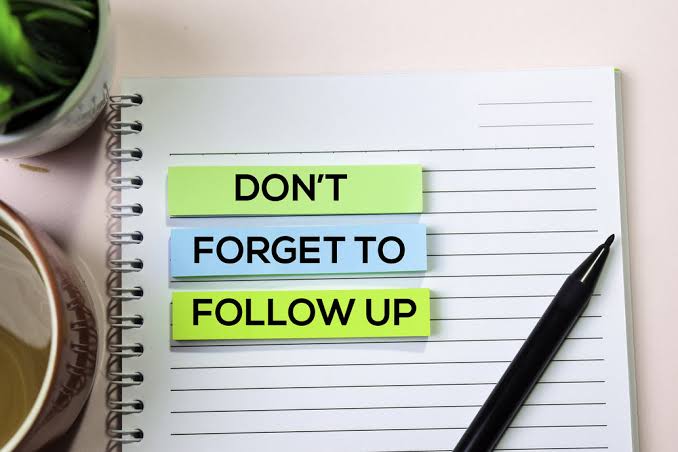By Zion Rufus
Quoting Jay Schwedelson, Founder of SubjectLine.com and CEO of Outcome Media (Worldata Group), “following up has become an underrated skill in marketing”.
In today’s fast-paced digital world, marketing professionals have underestimated the power of a well-timed follow-up.
Following up is a critical part of the sales process that can make all the difference in converting leads into loyal customers. However, as more marketers focus solely on lead generation and initial outreach, they have overlooked the importance of following up with leads and potential customers.
Helen Akue, a brands and communications consultant validates this viewpoint.
While speaking to MARKETING EDGE, Akue posited that today, following up is probably one of the most powerful and underutilized strategies in business.
According to the marketing professional, following up with leads can help build trust, establish credibility, and create long-term customer relationships.
“One size does not fit all when it comes to follow-ups,” Akue stated. “You need to understand your customers’ needs and preferences to provide a relevant and effective follow-up strategy.”
“It’s important to follow up promptly and regularly to show that you’re invested in their success and that you’re always there to help,” she advised, buttressing that when it comes to sales, it is all about follow-ups because it could be the difference between a lost opportunity and a loyal customer.
“I have to agree here,” says Abhishek ‘Harry’ Haridasan, a digital media consultant.
“And my manager is superb at it. I don’t know how she does it, but everyone seems to pick up her followup call or respond to her followup mail, whenever needed, but never mine. That’s some skill, for sure,” he emphasized.
Without following up, potential customers may feel neglected or lose interest, and competitors could swoop in and win their business. In fact, research shows that 80% of sales require five follow-ups before closing.
Recounting her experience Aadilah Soobratty, a freelance copywriter and content strategist revealed that she has lost out on potential leads because she did not know how to follow up.
“These days, I try to add value and personalize follow-up emails even more. For example, I’ll say that I’ve noticed X trend in their industry and now would be a good time to surf that wave. I’ll also add that I’m finalizing my schedule for the month/X period of time. It’s true, plus it helps trigger a little FOMO,” Soobratty pointed out in a Linkedin comment.
For marketers, a timely follow-up shows that you value the interest of your customers and you are willing to put in the effort to build a relationship. It also gives you an opportunity to address any concerns or questions they may have, further solidifying your brand as reliable and trustworthy.
Gregory D. Welch, an AI strategist, revealed that following up is a “simple and effective game-changer”.
For Welch, by mastering the art of following up, marketers can unlock a world of opportunities, bolster connections, seize hidden chances, and propel themselves to success.
In his submission, Welch advised: “Be purpose-driven: Don’t just follow up-add value. Share unique insights or resources to enrich conversations and showcase genuine interest. Dig deeper, go beyond small talk. Ask intriguing questions or share relatable stories to spark meaningful discussions. Be systematic and tenacious, leverage tools and systems for timely, organized follow-ups. Set reminders, take notes, and be relentless in your pursuit of engagement.”
There are several ways to follow up with potential customers, including phone calls, emails, and social media messages. However, it’s important to personalize your follow-up approach and tailor it to the individual customer.
Additionally, it’s essential to track and analyze your follow-up efforts to determine what works and what doesn’t. By measuring the effectiveness of your follow-up tactics, you can optimize your approach and improve your conversion rates.







Comment
No comments found.